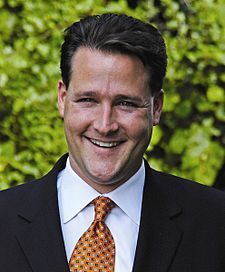Improving Communication Skills – November 2005
By Sean Wolfington
November 2005
Our ability to influence the lives of others is only as great as our ability to communicate with them.
Consider the possibilities. Every day we have the opportunity to:
• Help family, employees, colleagues and customers make wise decisions
• Convey ideas and concepts that are important to us and to them
• Prevent and avoid mistakes; either today or down the road
• Lift their spirits, give them hope and bring them comfort
• Strengthen their self-image and boost their confidence
• Improve our team’s effectiveness and results.
Our ability to communicate determines whether our interactions bring us closer together or drive us further apart from others. Before we can articulate our views, we need to create a climate in which others want to communicate with us and want to share our thoughts, plans and ideas. Last month, I wrote that others will go along with your ideas if they get along with you as a person, and this holds true for communication, as well. Think about a person with which you enjoy working. When he or she has something to say, do you listen? If he or she has a new idea, even one that may be controversial or risky, do you at least hear this person out or do you shut them down and tune them out? Now conjure up an image of a person to whom you have a difficult time relating. If these people came to you with the same idea, who would you support?
Great communicators understand that communication starts before the message is sent. It starts with everyday relationships and being interested in the other person, and what’s important to them. When we focus on the other person and on creating an environment that makes our audience comfortable and eager to hear what we have to say, we’re better able to strategically position our ideas for success. We’ve all heard the old adage that “a man convinced against his will is of the same opinion still” but what can we do to keep from falling into that trap ourselves? For starters, I’ve outlined the four characteristics of a powerful communicator. Foster these characteristics in others and in yourself and you’ll improve your ability to communicate.
Passion:
Every great communicator has a passionate belief that his or her purpose is founded in solid principles and has the ability to change the world. Cultivate a burning mission to share your message with others and you cannot fail. Even if they don’t agree with the content of your message, when others can sense your passion and appreciate your purpose you are on your way to connecting with your audience, and that’s the first hurdle.
Attitude:
It’s not about you. Seek to understand. Be interesting by being interested in them. Seek out other people’s ideas and build on them.
Persist.
If you’’ve ever read an autobiography of someone you admire, chances are they failed a great many times on their way to success. With failure comes an opportunity to learn, and persistence is what sets the best of the best apart from those who are satisfied with the path of least resistance.
Skill:
A common misconception is that great communicators are born. And while it may come more naturally for some than for others, rest assured that powerful communication skills are something you can learn, practice and become proficient in. When speaking one on one with an individual or even in a small group, it helps to employ a simple listening skill called C2 for “confirm and clarify.”
Confirm:
While many sales people are great listeners, the challenge is to let the other person know that we are listening by confirming or restating, in your own words, exactly what you heard them to say. It may help to use a lead-in statement before you paraphrase what you just heard, and some examples you can use are:
1. “If I heard you correctly, what you mean is …”
2. “So you’re saying …”
3. “When you say …”.
Clarify:
Once you’ve demonstrated to the other person that you’re actively listening, it may help to clarify what they mean by asking an exploratory question or making a statement that will help you both to gain clarity. It shows that you care, builds rapport and trust and creates that environment in which people want to hear what you have to say.
Examples are:
1. “Tell me more”
2. “What do you mean by that?”
Persistence:
What happens when you’re on fi re with a sense of purpose, you’re becoming profi cient with the communication skill of C2 and still you’re not the powerful communicator you had dreamed you’d be? Persist. If you’ve ever read an autobiography of someone you admire, chances are they failed a great many times on their way to success. With failure comes an opportunity to learn, and persistence is what sets the best of the best apart from those who are satisfi ed with the path of least resistance.
Practice:
Perfect practice equals perfect results. Great communicators are like great athletes; they’re not born, they’re made, and they practice their gift to build the most from what they’ve been given. Seize the opportunity today to practice improving your communication skills with the next person you encounter. You might be surprised with the results.
Sean Wolfington is the owner of BZResults.com. He can be contacted at 866.802.5753, or by e-mail at swolfington@autosuccess.biz.


